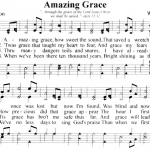At the end of January, Patheos blogger Joanne McPortland made a modest proposal that the Church should stop focusing so much on Sunday School and put most of its efforts into catechizing adults, instead. She wrote:
The thing is, whatever method you use, from Latin recitation to puppet play, there is no way you can transmit adult faith to a child of 5 or 7 or 11 or 13 or (if you’re really, really lucky) 17. There is even less possibility of success when you expect the child to retain that barely-comprehensible catechesis into adulthood and assume the challenge of becoming not only a lifelong autodidact of the Faith, but also an intentional disciple and catechist of his or her own children…
That’s why I say let’s make it a dramatic break. What if, starting next fall, there were no children’s religious education programs? What if our Catholic schools stopped teaching religion as a subject below the high school level, and instead focused on imbuing academic subjects with Catholic sensibilities? What if, on the other hand, we expected all adults to participate in some form of faith formation on a weekly basis, and provided child care to make it easier? (Thrifty re-use of craft supplies, that.) What if our catechetical conventions and publishers and media producers and speakers’ bureaus focused exclusively on adult faith formation?
She prompted a lot of responses (I’ve collected them below), and I quite appreciated the questions people raised about what religious education is meant to do for a child and how helpful it is to model it on ordinary school classes (with quizzes and worksheets, etc). But the passage that struck me most turned up the The Anchoress’s reflection:
I remember teaching a second grade CCD class, trying to prep kids for their first Holy Communions. Picking up her daughter, a mother lit into me: “Why doesn’t she know the Our Father?” She demanded.
“I don’t know,” I answered. “Do you pray it with her every day, at home? There’s only so much I can do with 45-minutes a week, and a class of 22.”
She took great offense at that. She had paid $30 for this class; why should anything be expected of her?
After all, I was catechized as an adult (though, from the best of my understanding, RCIA classes follow the CCD model, minus the quizzes and craft projects). And, to be honest, although the people teaching the class were very nice and did cover the sacraments, the gifts of the Holy Spirit, etc, I have trouble imagining inheriting a faith from that classroom alone. Just like in The Anchoress’s class, we were more likely to learn that the “Our Father” was a common prayer than to learn when to pray it.
I got a lot more out of just knowing Catholics and seeing them live out their faith and being able to ask questions. I got a lot out of First Things, especially the online content, where I was more likely to see personal essays and reflections, instead of detailed, academic content. (Though, nerd that I am, I enjoyed that, too).
But, as usual, I got a lot out of memoirs and novels, too. Some that were particularly helpful include: C.S. Lewis’s The Screwtape Letters, Dostoyevsky’s The Brothers Karamazov, Evelyn Waugh’s Brideshead Revisited, John Henry Newman’s Loss and Gain: The Story of a Convert, and plenty of others, I’m sure, but they’re the ones that leap to mind.
These books weren’t where I learned theology, but about how that theology could shape a life; and for that, I needed lives to observe. Fiction is particularly helpful, because it meant I could see how someone’s faith turned up in the background or what it felt like when you pushed it away, or how you justified it to yourself. (Other people probably learn this from non-fictional humans, but I like getting to cheat and peek insides someone’s thoughts, without relying on transparency of mind). But, whichever kind of life you study, it would be hard to find any of these rich details in a work of straight theology or to weave them into a worksheet.
No once a week class is long enough to cover this kind of material, but it is essential for faith formation (and learning philosophy of any type). And some parts of it can’t be taught to children, because they don’t have enough lived experience to recognize relevant experience of others, or because some of the best books are a little mature or long for them.
It seems like the goal of catechesis, as taught by the church, is to give you handles for the way religion works in your life. You don’t want to neglect to pass them on (where the kids, teens, or adults don’t walk out with a few new theological ideas) and you don’t want people to forget that handles need to be attached to something in order to give you any leverage. So, an ideal class (partnered with ideal parents) might emphasize observation of the lives of those around you and spying on other lives through literature and memoir, so you can fit the handles you’ve been given to the places in your own life where they’ll do the most good.
The Patheosi have been basically having an unofficial symposium on this topic, so I’ve collected all their pieces below:
- Joanne McPortland – What’s Really Wrong with Catholic Education? Everything!
- The Crescat – Turning the Sacraments into Perfunctory Gestures
- Dr. Gregory Popcak – Why Johnny Can’t Pray – Why Catholic Religious Education is Doomed to Fail
- Elizabeth Duffy – Kicking Catechesis Out of the Classroom
- Joanne McPortland – The Blogger Who Kicked Over the Hornets’ Nest: More Buzz and Sting about Religious Education
- The Crescat – More on Religious Ed…
- The Anchoress – Boom!: Patheos Catholic Bloggers Call for Um…Revolution!
- PEG – Random, possibly acrimonious thoughts on catechesis
- Dorian Speed – On Catechesis, Volume 1 of My Many Thoughts












